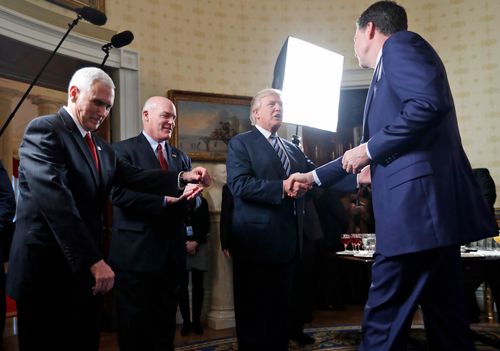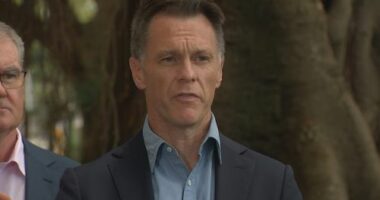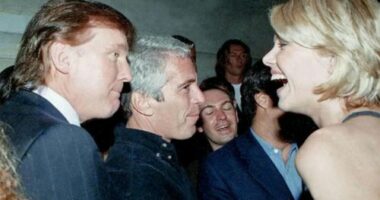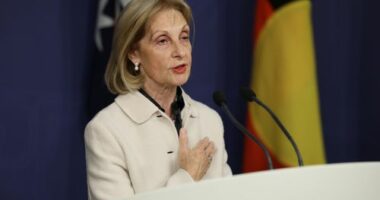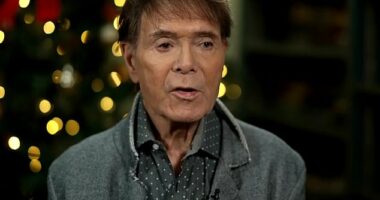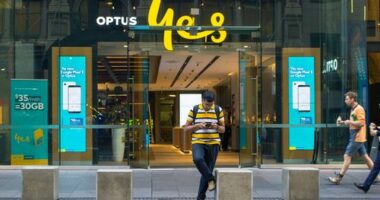Share this @internewscast.com
The formal charge against former FBI Director James Comey is summarized in a brief two-page document, accusing him of giving false testimony to Congress in 2020 about approving someone as an unnamed source for media stories.
That brevity belies a convoluted and contentious backstory.
The incidents linked to this disputed testimony are among the most thoroughly examined events in FBI history, leading to both internal and congressional probes that have resulted in extensive documentation and numerous transcripts.

What may have sparked the questions?
“Person 3” is not identified in the indictment.
The individual in question seems to have been referring to an investigation concerning Clinton, based on a clearer reference found in a felony charge not accepted by the grand jury.
Comey figured in several inquiries into alleged leaks in the Clinton investigation.
One instance involves McCabe, who informed the Department of Justice’s inspector general that he, as the deputy director of the FBI, had given permission to a subordinate to speak with a reporter from the Journal.
He told investigators he had informed Comey about that interaction after the fact.
It is improbable that the charge centers on this incident since McCabe did not tell investigators that Comey had specifically authorized him to engage with the press; instead, he noted that Comey was merely informed that McCabe had done so.
Two other leak investigations involved a friend of Comey’s who served for a time as a paid government adviser to the director.
That adviser, Daniel Richman, has told investigators he spoke to the media to help shape perceptions of the embattled FBI chief.
Richman, a law professor from Columbia University, was questioned by FBI agents in 2019 regarding media leaks about the bureau’s investigation connected to Clinton.
Richman said Comey had never authorised him to speak to the media about the Clinton investigation but he acknowledged Comey was aware that he sometimes engaged with reporters.
Comey has acknowledged using Richman as a conduit to the media in another matter.
After Comey was fired by Trump in 2017, he gave Richman a memo that detailed his interactions with the president.
Comey later testified to Congress that he had authorised Richman to disclose the contents of the memo to journalists with the hopes of spurring the appointment of a special counsel who might investigate Trump.
Trump and Comey have been engaged in a long-running feud.
Trump blames Comey for having started an investigation into Russia’s meddling in the 2016 campaign that led to the appointment of special counsel Robert Mueller.
Mueller spent the better part of two years investigating whether Trump’s campaign colluded with the Kremlin to help him win the White House.
In the end, Mueller uncovered no evidence that Trump or his associates criminally colluded with Russia, but found that they had welcomed Moscow’s assistance.
Trump has long vented about the “Russia hoax,” which shadowed and defined the early years of his first term.
Trump has spent the ensuing years bashing Comey and saying he was worthy of being charged with treason.
Just days before the indictment, Trump publicly urged his attorney general, Pam Bondi, to act against Comey and two other perceived Trump enemies: “We can’t delay any longer, it’s killing our reputation and credibility,” Trump posted on social media last week. “JUSTICE MUST BE SERVED, NOW.”
Within hours of the indictment being returned, Trump turned again to social media to gloat: “JUSTICE IN AMERICA! One of the worst human beings this Country has ever been exposed to is James Comey.”
Comey has hardly backed down, criticizing Trump on a host of matters. In a 2018 memoir, “A Higher Loyalty,” Comey compared Trump to a mafia don and said he was unethical and “untethered to truth.”
Like Trump, Comey took to social media after his indictment.
“My family and I have known for years there are costs to standing up to Donald Trump,” he said. “My heart is broken for the Department of Justice, but I have great confidence in the federal judicial system, and I’m innocent. So, let’s have a trial.”
